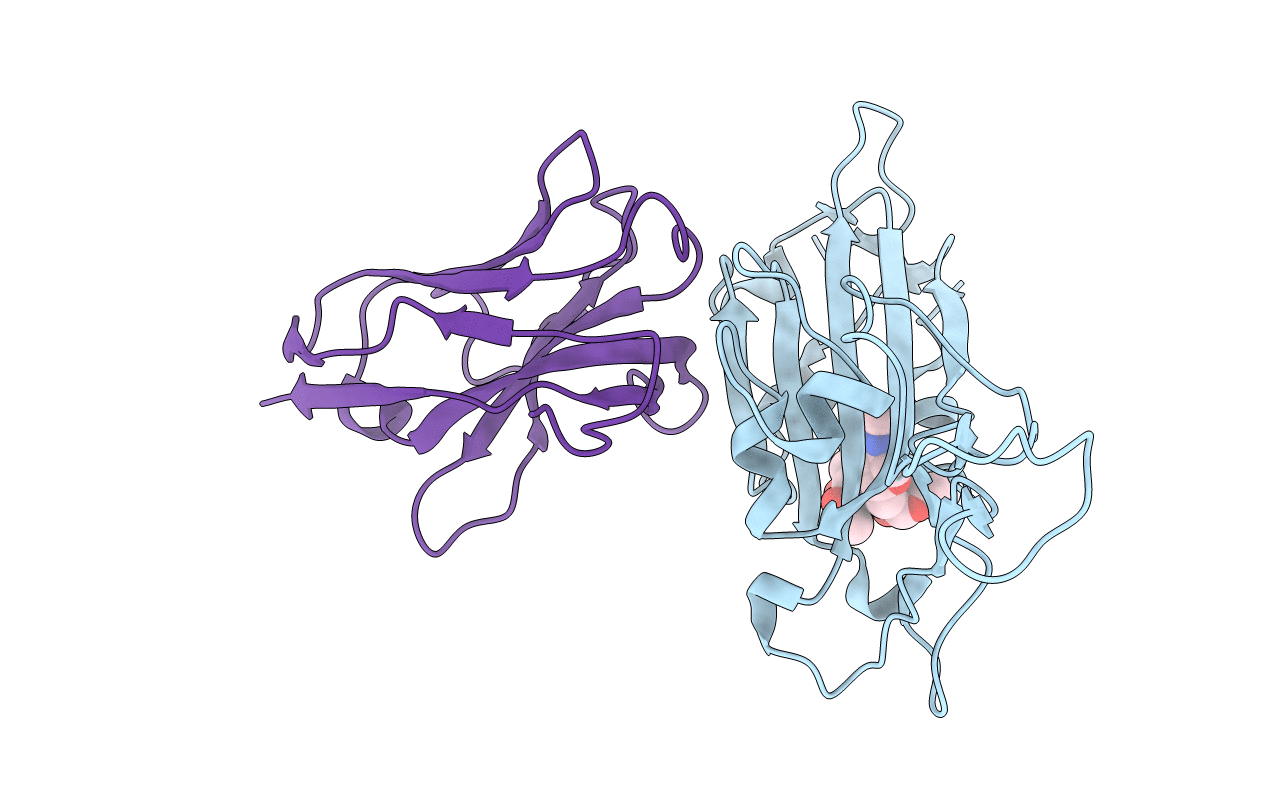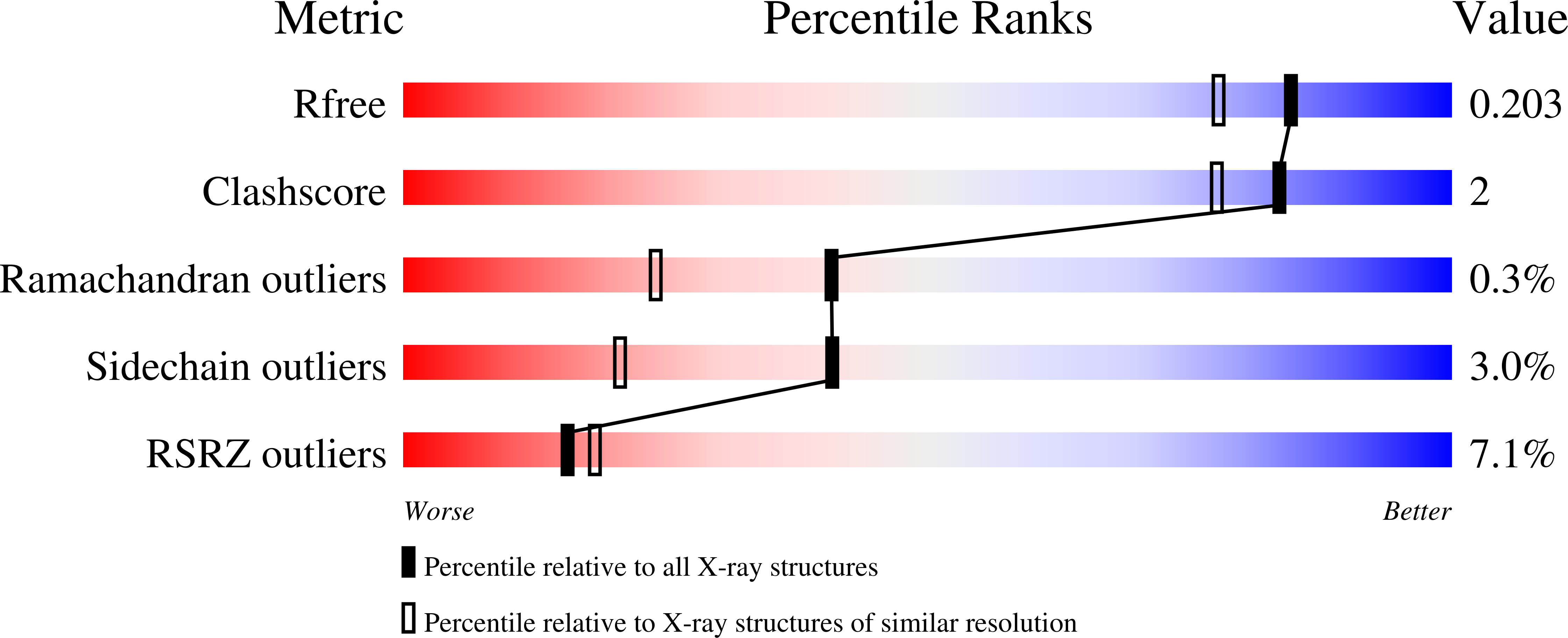
Deposition Date
2022-05-19
Release Date
2022-07-06
Last Version Date
2024-10-23
Entry Detail
PDB ID:
8CWU
Keywords:
Title:
Crystal structure of SARS-CoV-2 spike protein receptor-binding domain in complex with a cross-neutralizing nanobody 1-21
Biological Source:
Source Organism(s):
Severe acute respiratory syndrome coronavirus 2 (Taxon ID: 2697049)
Lama glama (Taxon ID: 9844)
Lama glama (Taxon ID: 9844)
Expression System(s):
Method Details:
Experimental Method:
Resolution:
1.71 Å
R-Value Free:
0.20
R-Value Work:
0.18
R-Value Observed:
0.18
Space Group:
C 1 2 1


